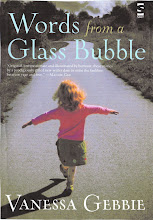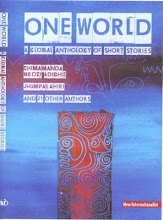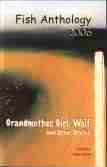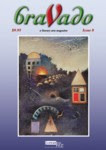(ABOVE WILLESDEN)
Pobably from that small bedroom at the back.
This musing from the reader of the entries for this year’s Willesden Comp. (Nope. Too late. Deadline all gone). Copied from WILLESDEN HERALD, HERE... >
A reading from the book of readings
• Thou shalt not indent the first line of the whole piece or the first line of separate sections.
• Thou shalt not put "The End" at the end.
• Thou shalt not put pictures in the manuscript for a writing competition.
• Thou shalt double-space, not single or 1.5 space.
• Thou shalt leave one inch margins at least.
• Thou shalt not include extracts of text from other sources which perplexeth the copyright lawyers mightily.
• Thou shalt beware of registered trademarks which likewise troubleth the abovementioned.
• Thou shalt not try to portray thine narrator as a great writer reflecting on troubles with latest world publication deal, because forsooth few readers wilt fall for that old trick.
• Thou shalt not submit multiple entries under false identities, which cometh sequentially all with typography of the tribe of Myopia and transparent airs about each, which giveth unwitting mirth to the reader.
• Thou shalt try to go easy on foreign language words or obscure terms which the reader hath to seek out verily in the temples of Merriam-Webster and Wikipedia, lest they be garbage of the devil.
• Accursed be they who include sentences and phrases in foreign languages that the reader hath no competence in, even if thou attemptest to reassure with translations in which said poor reader can have but little faith.
(We are assured too that these glitches will not necessarily stop a story doing well...but the list is a good thing to have, no?)
Have to say, I agree 100% with the THE END stuff. Heaven's sake. If a short story ends properly, it can't go on, can it, so why should there be a need for TELLING the reader that this is The End?
So unless you are specifically asked to indicate the end (perhaps on an online thing, for example) -a ll you are doing is saying something like this to the reader/judge:
'I am not a very experienced short story writer and I am unsure about this ending. In fact it may not BE the right ending at all. So I have added a few endings, as you will see... and now I've finished, so this is really THE END.'
Might as well type 'The Beginning' at the start, just before the title.
To Mac, who posts that I am being really horrid and nasty to new writers by copying Mr WH's post, and pointing out all this... I don't think so. By the same token, everyone who writes articles intended to give learner writers advice are being nasty. And so are tutors, teachers. All nasty horrid people, for sure.
.
Thanks, Mr W H , for posting the list above. I've added it to the info I hand out when I take workshops.
Subscribe to:
Post Comments (Atom)




.JPG)























30 comments:
Oh dear, I still type ENDS at the end. Should I stop?
Ha!
Im sure there are loads of answers to this one... mine is: Unless it is a fax, stop.
I think it's high time, Vanessa, that you remembered YOU were a newbie writer once. Slagging off writers for the fun of it is clearly not beneath your friends at the WH, but that's no excuse for you to do the same. I've a lot of time for your writing, but I'm often truly shocked by the nastiness that sometimes oozes from your fingertips.
:)
Oh I'm not so sure it's nasty, Mac - I'd have loved guidelines like this when I was a newbie.
Nik
Can you tell me where I have 'slagged writers off' Mac? I copied a post from Willesden Herald, because it is USEFUL advice for those entering any comps, isnt it?
And I stand by agreeing with his advice on NOT saying 'The End'. It is not good practice. Do you see 'The End' after a John Updike story? Annie Proulx? Alice Munro?
Course not!
And unless new writers read that here, there, anywhere, how are they going to know how it looks?
I guess you would not tell them, yourself? Well... that to me is far far nastier than pointing out flaws.
Happy Christmas, and I hope 2009 brings you lots of success.
I dont think anyone at The Workhouse 'slags off' ANY writers. They may well slag off appalling WRITING... and that as you know well, is a very different thing.
I'm sorry for any ill-feeling this may have caused. It was intended as an amusing way of conveying a few opinions about typography and so forth. Putting "The End" may tend to prejudice a reader slightly against the piece. One always has to glance at the end, while squinting to avoid reading the conclusion, to see if they've put their names there - as sometimes as been the case. A few entries contain strange addenda etc at the end, which might be ok. But what can't go through is what sometimes appears, a complete name and address. You might say why not edit it out, but if they can't be bothered reading the rules, why should anyone bother reading the entry? It wouldn't really be fair to those who follow the rules. One of the things that gives most pain is the 1.5 spacers. I have to assume they think it's double-spacing and give them a chance, because there are so many of them. Almost invariably they have narrow margins as well. I think it might knock out a large number of otherwise not bad stories. But I do wish they would get it right, because if they get to the short list and get printed out and sent to the judge, the judge needs that double-spacing and margins - not 1.5. I know it sounds petty, but that's going to put the judge right off. You might not think that when you look at your neat printout with narrow margins and 1.5 spacing, but unbeknownst (is that still a word?) to you, it is up against much more professional-looking entries. The real pros are invariably very, very slick.
Here's another tip exclusively for VG's readers - and it doesn't affect the WH competition because that's online entry only: Don't use either the cheapest, flimsiest A4 that Staples sells (I know - I use it myself) for your competition entry (multi-use 5 gsm). Treat yourself to a ream of the second cheapest, second flimsiest (I think it's 8 gsm, but that's from dodgy memory) specially for competition entries. It won't break the bank. But don't go for any heavier or shinier than that or that is likely to rankle as well.
It just gives you that little edge, when the reader picks up the printout and the paper's nice and the content perfectly arranged on the page. You just think, hello? this looks like it might be ok.
Let's peek with squinted eyes. Oh damn, "The End" A. Hack, Dunroamin.
;-).
hi Os
Amusing it was, whilst being useful and good advice as well. Dont worry about 'Mac'. It's meaningless, says more about her than anything else!
As you say, if entrants can't be bothered to follow the guidelines set out by the competition - why should the competition accept those entries alongside those who DID bother?
And it is diamond stuff to have Willesden's comments about layout, formatting and so forth.
And the paper thing. That's intersting. Flimsy I would never have sent. I may well have splashed out on the good stuff though. Good to know that this also goeth down less than well! I suppose its all calling attention to the entry, balance in all things, eh?
I have heard somebody say that it appeared that the better stories were often on better paper. Personally, I don't like shiny paper, but all of this is trivial as long as readers give due attention to the text. However, there may be some competitions where thousands of entries have to be processed, where you could imagine filter readers hardly even giving that messy sort of entry a chance, then it never reaching the "real" readers.
Some people fold their story over and fit it into a small envelope, sometimes folded several times. It's bad enough A4 into A3, but quite a few come in ordinary envelopes and even a few in small square envelopes. That is another thing likely to prejudice the reader slightly - you can't help it. I still read with an open mind. If it goes anywhere in the competition, the document is likely to be read several times and if it's too flimsy or won't lie flat it just doesn't serve the story well.
Then there are the people who send binders of every type, including elaborate wallets with yet more binders inside. When entries are opened, numbered and passed on to the readers, the binders are discarded anyway. They're just a nuisance for the person who has to open the post.
Then there are the immaculate ones where the content is hopeless. I think the best ones tend to be not showy, but neat and easy on the eye. Still getting things in strange fonts and sizes.
Yup.
I just ran a workshop on polishing work for comps, strategy etc. No rocket science... just tried and tested stuff. (Mind you mac would say that was really REALLY nasty)... and it was worth spending time on the appearance of the work. Not just paper etc, and spacing, indentsm margins, but the actual appearance of the work on the page.
For example, a whole page , one long endless paragraph. Followed by another endless page of block print. Unless you are W G Sebald it is hard to get away with that.
Yes, I think paragraph length is part of style. I notice that each writer seems to have his or her own typical paragraph length. A lot of good short story writers also seem to have section lengths that are roughly consistent, not monotonously, but approximately most of the time. I imagine the sections correspond to writing sessions.
Its something I am furiously aware of. it was pointed out to me yonks ago by a kind soul... and now when I edit, I TRY to break up the pattern. otherwise it all becomes monotonous...
Personally, I can think of occasions when it's helpful to write ENDS. I don't agree that the endings of good stories are always obvious (eg The French Lieutenant's Woman offers alternative endings, an ending we may have predicted, and an ending (much more interesting and exciting) which we probably wouldn't. And what if John Fowles had gone and left off the final pages of his ms by mistake, and the first (more conventional) ending had come to the bottom of the page? Sometimes, when I was editing stories for metropolitan a story did come to the end of page, and sometimes I wasn't sure that this hadn't happened, which didn't always mean that the story was crap, just that I didn't know how to take the final sentence I had.
I'm a bit shocked re double spacing. As someone who started out writing on a typewriter I've always used 1.5 and thought of it as double, because it is indeed the same as you get with two returns on a typewriter. (and indeed some editors do still allow 1.5 as 'double')
Well, I'm not, actually...
No worries, E.
But your stories all have really good endings, for this reader!
Surely, a story has to have a beginning, a midle and an ....
If there is no ending, as such, or it could be anything , or it peters out... I feel cheated as a reader.
I specifically referred to "The End" at the bottom, not "[Ends]". I understand the need, especially with newspaper copy or something like that. It's putting "The End" that sounds a bit juvenile, really. I also specifically stated that 1.5 had to be allowed because people probably thought it was double-spacing. Maybe it can be argued that it is double-spacing but technically it doesn't leave enough space to copy-edit easily between the lines, ready for publication.
Ossian, I understand that, and thanks for the elucidation - I shall certainly pay more attention to the matter in future!
Vanessa, I guess it depends what we mean by strong endings - I think the short story is brilliant for creating resonant open endings, but that doesn't mean they aren't strong, of course...
So I guess we're agreeing really.
Thanks for this discussion everyone - it's been really interesting and insightful to someone who hasn't yet subbed to any competitions but has been thinking he probably should have for a good while...
Nik
Ossian, you say that double-spacing "doesn't leave enough space to copy-edit easily between the lines, ready for publication" - I can understand this, but why do competition judges (as opposed to copy editors) need stories to be double spaced, with wide margins?
Argh!
I double space, I do 12 point, I never write The End, but eeek, I don't even know how to set a margin on my mac book!
Interesting stuff, thanks for the insight.
Frances, it's easier on the eyes. When there's a big pile of submissions on one side, you pick the next one and it's wide across the page or has crowded lines, it's just not as pleasant to read. Compare that to picking up the 20th one today and finding it has a nice narrow column of words and plenty of space between the lines - you're more likely to get to page two, I think. It's the same with books, if the print is crowded it's harder on the eye, but the worst part is narrow margins, because it's not easy on the eyes reading long lines. Notice how few characters there are per line in most books, and how wide margins are (unless it's one of those cheapo, crowded ones). There might be only say 50 characters per line and about 28 lines per page. If there were 300 characters per line and or 100 lines per page, it would be off-putting, I think. It would make it look like a chore to read a page. If we want to get them turning the pages, best make it easy on their eyesight, I suppose is the long and the short of it.
As regards the copy-editing, it's probably all electronic now, so I don't know how much difference the spacing makes when it comes to that, really.
Ossian, average lines per page in most books is 36, which is more or less what you get if you 1.5 space on an A4 page with decent top and bottom margins.
I have to say that when I edited metropolitan this was how most of the mss looked, and I found it easy enough to copyedit those. However, as you say, most copyediting is done on the screen nowadays - though I suppose people still make marks on the copy before they transfer to computer? If not, then maybe it's easier to have bigger spacing for the screen...?
I guess 1.5 spacing is ok. I haven't got printouts this time, so I can't hold up two and compare just to get a feel for it again. So I just opened 15 in Word (I tend to open 10 at a time for the competition reading) to see if I could find some 1.5's to compare to double-spaced. As it happens all 15 are double-spaced, so that itself is one warning sign. It's not so much whether things look good when you and I print them prior to sending out - it's whether on the desk the land on there are other things that look better. I'm not exactly a fashion dandy (well, as far from it as possible) but I don't like to walk into an event looking shabbier than the rest. It might be silly, in fact it is silly, because in front of the mirror in my hallway I look ok, but when I get to the Bafta premier or whatever, the others make me feel like a scruff. Oh yes, I have been to a Bafta premier, as I never cease to tell all and sundry. Once, years ago. John Sessions and Ronnie Ancona and people like that were there. And that is what the other people's manuscripts look like compared to ours. (I include myself, because I've made all the mistakes myself in the past.)
Personally I find double-spaced mss much harder to read than 1.5. By the time my eye has traversed all that space, I've forgotten what was being said.
I guess the point could be that the comp organisers stipulate the formatting they find easiest to read. Or the formatting they wish to send to be edited if that is happening, maybe. Or for whatever reason!
It's their wishes, and so it is only sensible to stick to those guidelines to the letter. Cos anything else will stick out as 'otherwise done' and will set up a negative reaction, however slight....... and is that really what entrants want the readers to feel when they starting to read their stories?
I agree it's a toss-up about the spacing. 1.5 is quite nice. But the rules are a handy sort of aptitude test as well. There are 131 disqualified this year out of 645. I have assumed that 1.5 is a form of double-spaced and not disqualified those. The rest are mostly for single-spaced and authors' names in the text.
Thanks for the feedback. I'm not cut out to be a monk in a silent order, it seems. Anything I say seems to irritate a number of people. I guess that's inevitable when there are hundreds. Even if I said "The drinks are on me, doubles all round," somebody would say "Flash git" or whatever. Luckily I'm old enough not to really care what anybody throws at me. I'm like one of those old geezers they make judges for political situations where their careers are no longer in question. I have really nothing to lose and I love reading stories and having competitions. "Let's do the show right here" has always been one of my favourite lines.
Thanks.
Os,
I think it is so important to KEEP SAYING 'Stick to the guidelines..'. This discussion just proves that. 131 out of 645 entries disqualified because their writers did not bother to do so is really an eye-opener.
Thank you!!
Ossian, it was never my intention to imply that you had irritated me! You didn't! I was simply expressing shock at my own apparent misconceptions re 1.5 spacing and explaining that it stems from the different technology with which many of us began writing (and yes, OK, questioning it: but that doesn't mean I wanted to be confrontational or personal). And thanks for engaging in this discussion.
Elizabeth, I wasn't thinking about our pleasant conversation here, I was referring to some of the other shenanigans on other websites. It's so nice here, I think I'll hide out here and never post anything anywhere else ever again. (Just kidding, Vanessa!)
In general it's folly to comment and I'm a prize twit for continuing to do so, but "in the grand scheme of things" (to quote Khayyam) it's a sub-atomic particle - if that.
You are more than welcome to natter here, Os.
And don't do yourself down... lots of people appreciate what you are doing for the short story.
Quote: "Last year's 'stuff' is last year's stuff."
Fred Khayam
Post a Comment